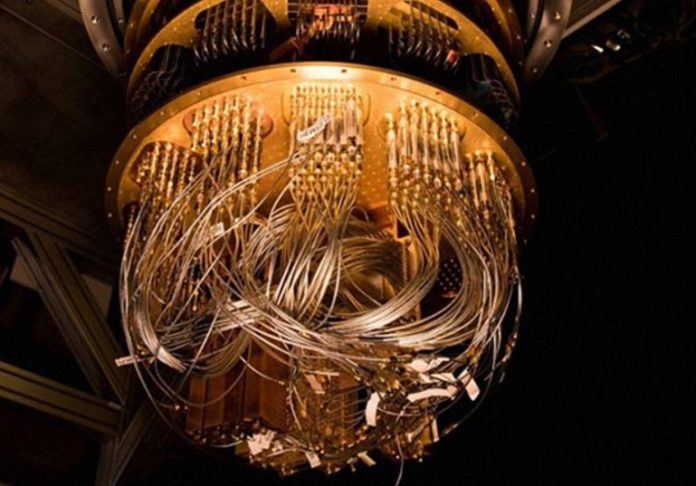IBM’s quantum computing team criticized Google’s claim of quantum superiority with their device. In an article that accidentally became available to the public, it was stated that scientists were able to use a 53-qubit computer to perform calculations in 200 seconds, which would require 10,000 years of operation of a classic computer. However, IBM believes that a conventional computer will do this in 2.5 days in the worst case, and the answer will be more accurate than that of a quantum computer, the blog says on the company’s website.
A month ago, a preprint with the results of the work of employees of the department and Google was available on the NASA server. This text talked about testing the capabilities of a quantum computer Sycamore with 53 qubits. According to the authors of the article, they managed to achieve quantum superiority using this device, that is, to solve a problem in a reasonable time on a quantum computer, the search for an answer to which even with the most powerful classical computer will take an unrealistically long time.
As a performance test, a group of John Martinis, a quantum computing manager at Google and a professor at the University of California at Santa Barbara, chose a very special task. It consisted of executing a well-known random sequence of commands, reading the final state of qubits in the form of a string of 53 numbers by the number of elements and repeating this operation millions of times. Then, the statistics of the resulting distribution of responses are compared with the expected, since for a known sequence of instructions it can be calculated.
This task has very limited potential in terms of practical applications, but the author of the term “quantum superiority” John Preskill did not distinguish between useful in reality and purely technical calculations. Apparently, Google specifically chose a relatively simple task for quantum, but difficult for a classical computer.
An article by Martinis and co-authors claimed that they managed to achieve such a level of coincidence of quantum states ( fidelity ) in 200 seconds that it would take about 10,000 years of work for Summit, the most powerful modern classic computer. Naturally, no one conducted such a check, this number is the result of a theoretical assessment of the complexity of the task, which is based on the assumption that it is impossible to keep all the information necessary for each stage of computing in the supercomputer’s RAM, which makes it inevitable to use memory-saving algorithms to the detriment of time work.
The text of three employees of IBM, which is also actively engaged in the development of quantum computing, disputes the allegation about the inherent complexity of such calculations for a classic supercomputer. The authors argue that a modern classic calculator will be able to achieve much greater fidelity in 2.5 days, and this is a conservative estimate, that is, additional funds should further reduce the required time.
This conclusion was reached by IBM employees by including several optimization methods in theoretical analysis. The main one was that the classic computer will store the information necessary for current computing not only in RAM, but also on hard drives. It should be noted that this assessment is also theoretical and at IBM only simulated the process, and did not carry out the necessary calculations in full.
In conclusion, the authors write that the results of Google, although of undoubted interest, can not be considered evidence of the superiority of quantum computers over classical ones. They also pay special attention to the ability of the term quantum superiority to confuse any person who does not specialize in research in this field, since only considering the issue in the right context allows us to draw the right conclusions.
